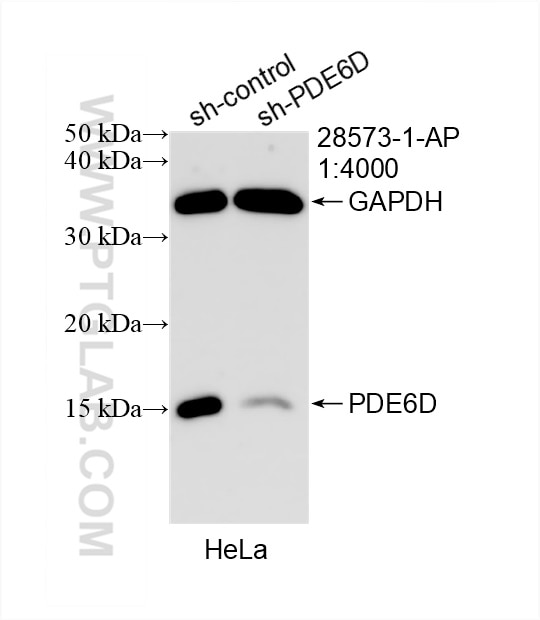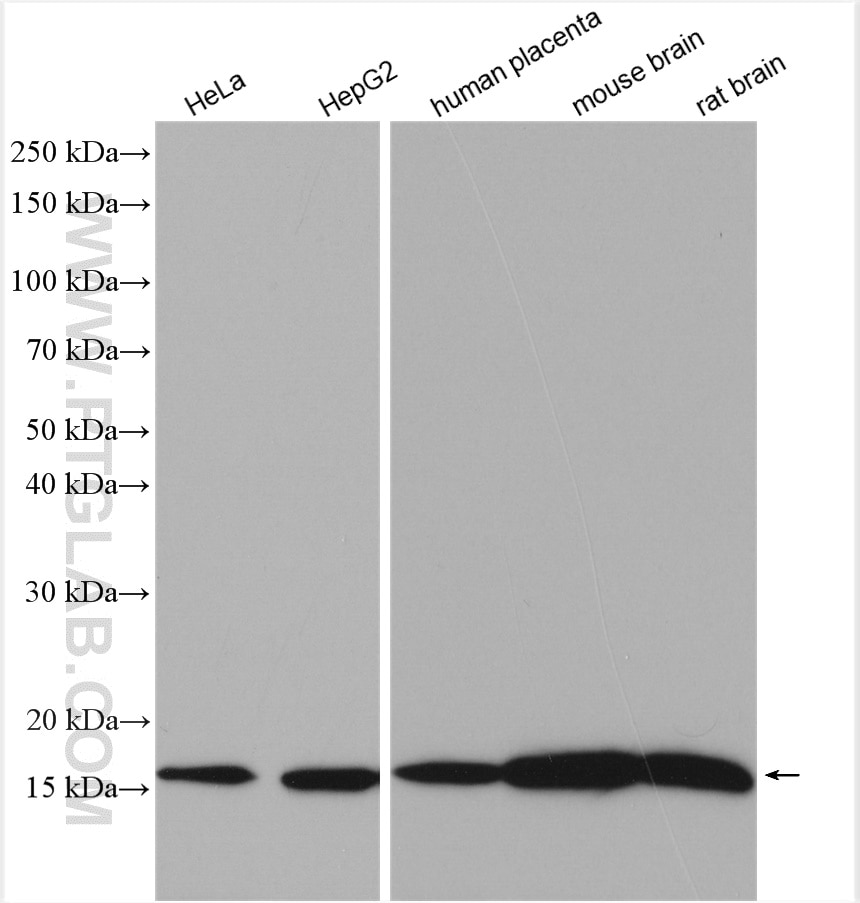Tested Applications
| Positive WB detected in | HeLa cells, HepG2 cells, human placenta tissue, mouse brain tissue, rat brain tissue |
Recommended dilution
| Application | Dilution |
|---|---|
| Western Blot (WB) | WB : 1:1000-1:5000 |
| It is recommended that this reagent should be titrated in each testing system to obtain optimal results. | |
| Sample-dependent, Check data in validation data gallery. | |
Product Information
28573-1-AP targets PDE6D in WB, ELISA applications and shows reactivity with human, mouse, rat samples.
| Tested Reactivity | human, mouse, rat |
| Host / Isotype | Rabbit / IgG |
| Class | Polyclonal |
| Type | Antibody |
| Immunogen | PDE6D fusion protein Ag29563 Predict reactive species |
| Full Name | phosphodiesterase 6D, cGMP-specific, rod, delta |
| Calculated Molecular Weight | 17 KDa |
| Observed Molecular Weight | 14-17 kDa |
| GenBank Accession Number | NM_002601 |
| Gene Symbol | PDE6D |
| Gene ID (NCBI) | 5147 |
| RRID | AB_2881173 |
| Conjugate | Unconjugated |
| Form | Liquid |
| Purification Method | Antigen affinity purification |
| UNIPROT ID | O43924 |
| Storage Buffer | PBS with 0.02% sodium azide and 50% glycerol , pH 7.3 |
| Storage Conditions | Store at -20°C. Stable for one year after shipment. Aliquoting is unnecessary for -20oC storage. 20ul sizes contain 0.1% BSA. |
Background Information
PDE6D, also known as PDED, belongs to the PDE6D/unc-119 family. PDE6D is a ubiquitously expressed prenyl-binding protein. By binding to prenyl moieties, PDE6D mediates the shuttling of prenylated proteins between membranes. Thereby, it regulates the membrane association of Ras and Rap GTPases (PMID: 36672247). In addition, research has shown that PDE6D is overexpressed in liver cancer and correlated with tumor stages, grading, and ERK activation (PMID: 30901922). The calculated molecular weight of PDE6D is 17 kDa.
Protocols
| Product Specific Protocols | |
|---|---|
| WB protocol for PDE6D antibody 28573-1-AP | Download protocol |
| Standard Protocols | |
|---|---|
| Click here to view our Standard Protocols |





